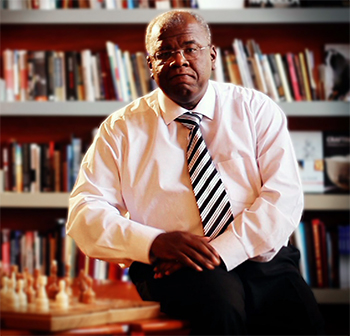Latest News Archive
Please select Category, Year, and then Month to display items
30 October 2018
|
Story Rulanzen Martin
|
Photo Peet van Aardt
 Some of the student writers who contributed to the anthology that tells their stories in Sesotho, isiXhosa, isiZulu, English and Afrikaans.
Some of the student writers who contributed to the anthology that tells their stories in Sesotho, isiXhosa, isiZulu, English and Afrikaans.
How do you transform the higher education curriculum? You involve the exact people the curriculum is intended for. The book, Initiative for Creative African Narratives (iCAN,) illustrates how decolonisation can be achieved through literature for students by students.
iCAN is an initiative by the Centre for Teaching and Learning (CTL) at the University of the Free State (UFS) to mentor students in creative and narrative writing. Under the mentorship of Dr Peet van Aardt, project coordinator, and Ace Moloi, author and UFS alumnus, iCAN Volume 1 was recently launched with 47 short stories written by UFS students.
“The project is a response from the centre for the ever-increasing need for decolonised curricula, steeped in the local cultural perspective of ubuntu,” said Dr Van Aardt.
“This book is an example for how decolonisation can be implemented,” said Prof Francois Stydrom, Senior Director of CTL. The overall aim of the iCAN project is to have the content that materialised from it to be included in the curriculum of first-year students at UFS in the near future.
Book provides multiple voices
Starting in May 2018, CTL presented a series of creative writing workshops on all three of the UFS campuses. “It’s a medium that allows a diverse range of students to express their views and develop their voices as writers,” said Prof Strydom.
It is a form of empowerment, to pass the baton to students to improve the UFS curriculum by writing and publishing their own stories, thereby contributing to larger bodies of knowledge through their lived experiences.
“I believe we as a university need to enable students so that they move away from just being users to becoming contributors to the curriculum,” Dr van Aardt concluded.
Prof Jonathan Jansen elected as new ASSAf President
2016-10-28

Prof Jonathan Jansen, former Vice-Chancellor
and Rector of the UFS, has been appointed
President of the ASSAf.
Photo: Supplied
The Academy of Science of South Africa (ASSAf) has elected former Vice-Chancellor and Rector of the University of the Free State (UFS), Prof Jonathan Jansen, as its new President for the next four years. He succeeds Prof Daya Reddy. Distinguished Professors Brenda Wingfield and Barney Pityana were elected ASSAf’s new Vice-Presidents.
The minds that shape tomorrow
The academy’s directive is to advise and provide the government with evidence-based solutions to national problems; inspiration, and examples of how science and technology can be applied for the benefit of society. ASSAf represents scientists in South Africa but also represents the country in the international community of science academies.
Prof Jansen, who is currently a Senior Research Professor at the UFS and a Fellow at the Center for Advanced Studies in the Behavioral Sciences at Stanford University, is also a Fellow of the American Educational Research Association, a Fellow of The World Academy of Sciences, and President of the South African Institute of Race Relations.
The great achieve greatly
Prof Jansen’s book, Knowledge in the Blood: Confronting Race and the Apartheid Past won the Nayef Al-Rodhan Prize, the largest award from the British Academy for Social Sciences and Humanities, for its contribution to scholarly excellence and transcultural understanding.
In 2013, he was awarded the Education Africa Lifetime Achiever Award in New York and the Spendlove Award from the University of California for his contributions to tolerance, democracy and human rights. He holds honorary degrees from the University of Edinburgh, the University of Vermont and Cleveland State University.
Plans for the future
His recent books include Leading for Change, which was published this year. He is completing a new book explaining the current crisis in, and future prospects of, South African universities, due for release in mid-2017.